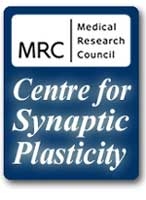Research at Bristol University into how the brain functions has received £4.7 million in funding from the Medical Research Council (MRC). The research has implications for the future treatment of many medical conditions, including epilepsy, Alzheimer’s disease, and the painful nerve complications that can result from traumatic injury and diabetes.
The money has been awarded to the Centre for Synaptic Plasticity, a joint venture between the University and the MRC, and will ensure that the Centre’s vital research continues for a further five years. The total of £4.7 million includes the Centre Grant of £1.2 million, as well as awards to individual members, who were also highly successful in securing grants for their research.
Professors Zafar Bashir and Malcolm Brown have received further funding for their work on recognition memory – the ability to recognise people, places and things on which we all rely to live normal, independent lives. The loss of recognition memory is a major symptom of early Alzheimer’s disease. Their MRC grant will fund work aimed at understanding precisely which parts of the brain are involved in recognition memory and how the cells of the brain process the information that allows recognition memory to occur.
Professor David Wynick has secured a programme grant to continue his work on galanin, a small protein that is found in pain sensing nerves of the body. Levels of galanin in the nerve increase by a least 100 fold after an injury or cut to the nervous system. The MRC grant will allow him to study further the role played by galanin in the sensory nerves and may have important implications for the development of possible treatments for the painful nerve complications that result from traumatic injury (eg car accidents) and diabetes.
Other grants include an MRC Career Development Fellowship awarded to Dr Jack Mellor, and a Research Career Development Fellowship from the Wellcome Trust awarded to Dr Jon Hanley. These four-year fellowships will enable research projects into various aspects of synaptic plasticity.
Professor Graham Collingridge, Director of the MRC Centre, said: "I am delighted by the success of MRC Centre members in obtaining major grants despite the difficult funding conditions this year. I am particularly pleased that all the fellowship applications were successful since independent young scientists represent the future of the Centre".
The MRC Centre for Synaptic Plasticity at the University of Bristol
The work of the MRC Centre allows insights into memory and learning – processes which are severely affected by conditions such as epilepsy and Alzheimer’s disease. The Centre’s mission is to advance our understanding of synaptic plasticity in a multidisciplinary and collaborative manner. Specifically, studies are directed at a greater understanding of how, where and why the brain modifies synaptic strength during normal function (in particular, during learning and memory) and in certain pathological states (such as in Alzheimer’s disease).
The Centre is administered from the University’s Department of Anatomy and is based within the School of Medical Sciences, home to one of the largest neuroscience communities within Europe. The Centre provides excellent research facilities for molecular biology, electrophysiology and imaging work in a stimulating and multidisciplinary environment.
